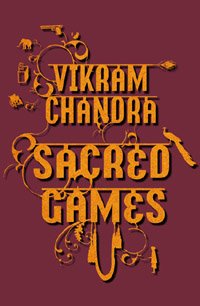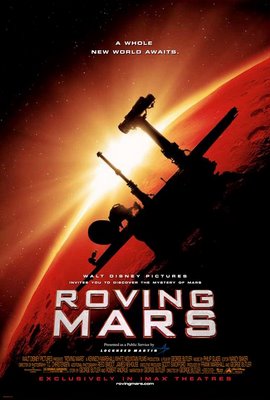
“I don’t know where my home is,” said
Romesh Gunesekera, answering a question on being an immigrant writer. “I think writers are one of the worst people to ask this question,” he added.
The well-known Sri Lanka-born novelist and poet, now living in London, was speaking at a gathering at the Asian Civilizations Museum’s auditorium yesterday evening. Captain Elmo Jayawardena, novelist, philanthropist, and a pilot with the Singapore Airlines, moderated the open discussion.
“When I was very very young, reading all sorts of books that I used to come across, I was never where I was reading, I was where I was fantasizing,” he said.
Romesh Gunesekera, now 52, broke into the English literary scene with his novel, Reef, which was shortlisted for the Booker Prize in 1994. His other books are Monkfish Moon, a collection of short stories touching on the ethnic and political tensions that has maimed Sri Lanka since its independence from colonial rule, The Sandglass (1998), and Heaven's Edge (2002). His latest book The Match (2006) is a psychological thriller.
Romesh, very much like the pictures he is usually seen in, is curiously tall and remarkably slender. He has a boyish Harry Potter like intelligent bespectacled face, but his unruly mop of salt and pepper makes him look like a monkish boy wizard who has grown a tad older in his troubled fantasyland while he has been busy spinning yarns for the folks.
“I happened to know Sri Lanka much more and much better once I was an adult, and was writing my books, than at the time when I was living there (in Sri Lanka),” he said.
Though Romesh was born in 1954 in Sri Lanka, where he spent his early years, he has lived an immigrant’s life. He lived in the Philippines before coming to Britain and settling there in 1971.
All these geographical shifts have equipped him with authorial ammunitions. Unlike many writers, he said, “I don’t write autobiographically. I write auto-geographically.”
From his first book itself, he has created a scintillating oeuvre, setting him on the path of an award-winning writing career. Reef won a Yorkshire Post Book Award (Best First Work) and was shortlisted for both the Booker Prize for Fiction and the Guardian Fiction Prize.
In Reef, a young Sri Lankan boy named Triton who is sent to work for a marine biologist, Mister Salgado, narrates the book. They are forced to leave Sri Lanka because of the worsening political circumstances, and making them move to London where Triton opens a restaurant.
The Sandglass (1998), his second novel, centres on the character of Prins Ducal. Ducal is a Sri Lankan businessman who is searching for the truth of his father's death. The novel was awarded the inaugural BBC Asia Award for Achievement in Writing and Literature. His novel, Heaven's Edge (2002), is set on an island in the near future. For his brilliant work, Romesh received an Arts Council Writers' Award in 1991.
“So, of course, it (Sri Lanka) is a very important part of my identity but where your children are and where your family is also a big part of your life,” he said.
Though Romesh lives in London with his English wife and two daughters, he travels widely for festivals, workshops and tours. In recent years he has held writing residencies in Hong Kong, Singapore and Denmark. He became a Fellow of the Royal Society of Literature in 2004.
Taking the discussion on passport identity further, he remarked on a lighter note, “These days, when I get out of a plane anywhere in the world, I feel relieved that I have been able to make the journey.”
But different countries did touch him somewhere deep down. “I actually find different landscapes do make my heart go a little faster,” he said.
Romesh’s journey from Reef to The Match has been outstanding. He himself likens this journey to that of a bookend, with Reef at one end and The Match at its opposite side.
“It (Reef) was written sadly a long time ago, sadly because it was written in 1993 when the sad troubles of Sri Lanka started. And connected to that I suppose is the fact that since then the stories that I have written have in a way tried to grapple with the tragedies that have come afterwards,” he said, connecting his stories to that of the parallel history of Sri Lanka, which has been quite violent.
As in the Rushdian sense of colonial and immigrant writing, in Romesh’s writing too memory plays a great role. Rushdian memory is fragmented, the mirror of memory is broken, flawed and yet it is able to make a powerful narrative that clashes with the narrative that politicians set out to describe: “The shards of memory acquired greater status, greater resonance, because they were remains; fragmentation made trivial things seem like symbols, and the mundane acquired numinous qualities.” (from Imaginary Homelands)
Literary critic
Susheila Nasta has written that “in many senses Reef is a novel of remembering whose preoccupation is as much with the fragments of memory, the recollection and naming of things past, as about Sri Lanka itself, the beleaguered ‘island’ where it is set during the 1960s to 1980s, a period of brewing political, ethical and religious turmoil.”
In contrast, to further explore the metaphor of the bookend, The Match, written almost a decade later, testifies to a better chapter to Sri Lanka’s history. “When I started this book (The Match), I actually wanted to begin a different set of experiences still connected to Sri Lanka but more of its happier side—and that has been Sri Lankan cricket, which I had not written about in my world of imagination. So I wanted to do that. And also I started (writing) this in 2002 when things were going rather better.”
For the first time, Romesh has used cricket as a backdrop to tell his story in The Match. And he is surprised by his achievement where he has masterfully married a sport into the narrative that is in the heart of every South Asian and Englishmen.
“I had never thought in my wildest fantasies (and I fantasize quite a lot) that I would ever write something in which any kind of sport will be of any consequential value. I had never thought I would write a book that would have cricket anywhere in it.”
So was this sport easy to write about? Did cricket come naturally to him? “I had played cricket when I was younger but I never was a cricket enthusiast. Now I watch it like a drunk, at least some of the matches involving Sri Lankan cricketers.”
He said that he did not set out to narrate to his readers the life stories of Sri Lankan cricketers through The Match. Yet, he mentioned, he complimented him for being able to integrate their (the cricketers’) life stories in his novel. It was not intended at all, he clarified.
How did he manage to write as capaciously as in two separate genres, as it were, asked Deepika Shetty of Channel NewsAsia, producer of the book show, Off The Shelf? She was referring to Heaven’s Edge which, one the one hand, is more like a magic realist work and The Match, which, on the other, employs the realistic mode of narration.
So, how does he manage to swing his pen between these two genres? “I try to write a different book each time but probably it does not work out,” he said. “Most writers tend to have a set of themes, interests or whatever and with each book I tried to be as realistic as possible.”
Romesh does not feel that Heaven’s Edge is a magic realist work at any rate. He said: “Heaven’s Edge was a very strange and different book. I wanted to write about something in the future. I wanted to invent everything. So many people see a Sri Lankan terrain in it. Sri Lanka is not mentioned there. And I invented a lot of the landscape, the country, what was going on in the country, so it was quite a relief that such a book in a sense was written in which everything was invented.”
Fielding a question from the audience, Romesh explained his idea of literature.
The value of literature lies in the fact that it helps us understand how different each individual is, he said. How simple but true!
Talking about the colonial heritage of the English language and whether he felt comfortable in writing in English, especially as a writer of colour residing in a country like England, he said, “English does not belong to anybody today.” His claim validates what Rushdie had once written: “To conquer English may be to complete the process of making ourselves free” (from colonial rule).
Romesh never felt any different from other writers in England as he saw there, he said almost in jest, so many native writers who succeeded and so many others who failed. “It would have rather seemed arrogant had I written some somewhere else (other than from London),” he admitted.
He gave the example of a native Briton, a white man, who always wanted to write something but didn’t know what to write about. Finally, to Romesh’s relief, his friend has written a book on India and it is doing rather well, he said.
Did he have any favourite authors? Romesh took a philosophical approach to this question. He said that one has favourite writers at an impressionable age. When he was of that age, he used to like reading the works of Faulkner, Scott Fitzgerald, and Graham Greene, among others. But that does not mean that he necessarily revisits those works.
About contemporary writers, he said he met a large number of living authors and it was almost impossible for him to read the works of his contemporaries (because they were so many). But sometimes he has to read some of his colleague’s works when he shares a panel with them during literary festivals and publishers send him copies of their books in advance.
From favourite authors the discussion segued into a discourse on the process of writing and the prospects of getting published for emerging writers.
For aspiring writers, he advice was the age old recipe: hard work, perseverance and of course a dash of good luck. “There are many more avenues for writing and getting published now,” he said. “But if one is aiming to get a break with a big publishing house, clearly the competition is extremely tough there. Thousands of people write and send in their manuscripts and big publishing houses can publish only so much.”
When Captain Elmo asked Romesh for tips on the process of writing, especially for a writer (Romesh) who had to work while living with a wife and children, Romesh almost burst into a guffaw. “Writing a book is like making a baby, and if you have not got it yet then perhaps you never will,” he said.
Perhaps that was a comment in a lighter vein but Romesh definitely knows what writing is and what it means and what it entails: “Writing, I guess like reading, is about stopping time. Only then do we realize that we do live forever, in a way, as our consciousness rushes in to fill the black hole of a rounded full stop.” (from Sandglass).
The evening ended in a book signing session. By the time I had my copy of Heaven’s Edge signed by him, it was about 9:30 pm. Amid the din, I had to spell out my first name to Romesh but he was very gentle with everyone. While he was signing my copy, he was also looking for his glass of red wine that he had left somewhere on the large table where his books were doing a brisk sale. It was resting listlessly near the cash till, oblivious to the crowd of pushing elbows, books and plastic bags, a swig of undrained wine almost looking like a fat petal at the bottom of the glass.
Just before Romesh signed a copy of his book for me, one middle-aged gentleman requested him to sign a copy for his wife. “My wife wants to write. She has not written anything yet but would you please write something to encourage her,” he said. The man’s voice was immensely full of love and tenderness. Romesh obliged.
END










